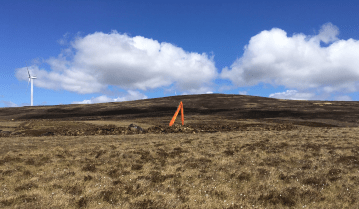A ban on food waste to landfill
29th August 2014
The Department of the Environment (DOE) in Northern Ireland has announced that from 01 April 2015, it will be imposing bans on landfilling of separately collected food waste. This ban on separately collected food wastes from landfill, will bring changes to how your businesses will be required to manage food waste created on your premises as summarised below.
It is proposed to require all food waste producers to source segregate food waste:
- from 2016 for businesses that produce more than 50kg of food waste per week, and
- from 2017 for business that produce between 5kg – 50kg of food waste per week.
What does this mean for my business?
- If your business is segregating food waste already, ensure your waste contractor is disposing of this at a site which is appropriately licensed by the NIEA to ensure food waste is not mixed (and contaminating) other wastes designated for landfill;
- Determine quantities of food waste generated weekly and provide separate receptacles close to sources of food waste as necessary; and
- Source cost-effective collection for your separately collected food wastes.
Why is the ban being imposed?
The banning of separately collected food waste from landfill, confirms one of the measures contained within the draft Food Waste Regulations (Northern Ireland) Order 2013, a result of the revised Northern Ireland Waste Management Strategy entitled “Delivering Resource Efficiency”, which sets the policy framework for the management of waste in Northern Ireland. A consultation on this Strategy ran between 26 October 2012 and 18 January 2013, with support for the planned ban on landfilling of separately collected food waste being a key output.
In addition, the new Strategy and draft Regulations move the emphasis of waste management in Northern Ireland from resource management, with landfill diversion as the key driver, to resource efficiency i.e. using resources in the most effective way while minimising the impact of their use on the environment. The aim is to support the recycling and composting industries and emerging technologies such as anaerobic digestion and in-vessel composting, as well as improving resource efficiency and food security at a global level, and would contribute to a reduction in GHG emissions resulting from their disposal in landfill.
Mabbett can support your business
Mabbett offer a wide range of waste management services, we can support your business to understand how to comply and support with development of a suitable waste management strategy, click here for more information.
If you need any assistance, contact Connor McGimpsey, Environmental Consultant via email at: mcgimpsey@mabbett.eu to discuss how Mabbett can help you save money on your food or other business waste.








 Previous
Previous 

